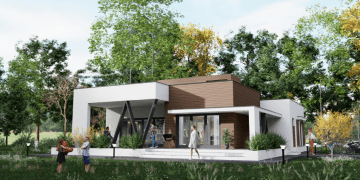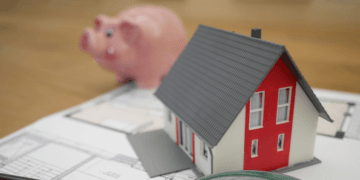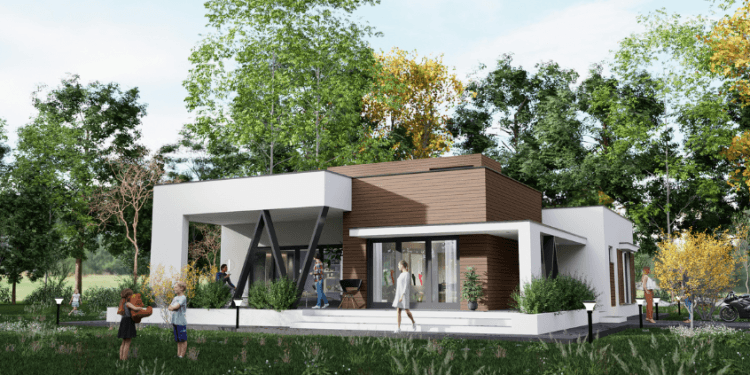When building a home, the design isn’t just about aesthetics or personal style—it’s also a critical financial decision. Your house plan can significantly impact your financial future, influencing everything from construction costs to long-term property value. By making smart choices during the planning phase, you can create your dream home and build a solid foundation for your financial well-being.
The Financial Impact of House Plan Size
One of the most direct ways a house plan affects your finances is through its size. While it might be tempting to go big, larger homes have higher construction costs, increased maintenance expenses, and bigger utility bills. Opting for a house plan that suits your needs without excess square footage can free up funds for other investments or savings, ensuring you’re not house-poor after the build.
Consider a smaller, more efficient design that maximizes space without unnecessary extras. Not only will this reduce your initial outlay, but it can also lower long-term costs, making it easier to maintain financial stability as your life evolves.
The Cost of Complexity
Complex architectural designs with intricate rooflines, multiple angles, and custom features might look stunning, but they can also drive up construction costs significantly. On the other hand, more straightforward house plans are often more affordable to build and maintain. A design with a straightforward roofline and fewer custom elements can save thousands in construction costs while still providing a beautiful and functional living space.
Choosing a plan with a simpler design doesn’t mean sacrificing style or comfort. It’s about finding a balance that allows you to achieve your desired look without overspending. This approach can leave more room in your budget for high-quality materials, energy-efficient upgrades, or future financial goals.
Energy Efficiency
Energy-efficient house plans are a wise financial choice, offering significant savings over the life of your home. You can reduce your utility bills and increase the home’s resale value by selecting a plan designed with energy efficiency in mind—such as proper insulation, energy-efficient windows, and strategic orientation for natural light.
While these features might require a higher initial investment, the long-term savings make them a wise financial decision. Over time, lower energy costs can offset the upfront expenses, allowing you to enjoy a more comfortable living environment and contribute to a greener planet while keeping more money in your pocket.
Resale Value
When choosing a house plan from Monster House Plans, it’s essential to consider resale value—even if you plan to stay in your home for many years. A well-designed home that appeals to a broad range of buyers can increase your property’s value and make it easier to sell when the time comes.
Consider factors such as layout, curb appeal, and the number of bedrooms and bathrooms. A house plan with popular features like an open floor plan, a modern kitchen, and ample storage space can make your home more attractive to potential buyers. By thinking ahead, you can ensure that your investment in your home continues to pay off in the future.
The Cost of Customization
While customizing your house plan can make your home uniquely yours, it can also add to the overall cost. Custom features, whether in the design or finishes, can quickly escalate your budget. It’s essential to strike a balance between personalization and financial prudence.
Consider focusing your customization efforts on areas that matter most to you or that will add the most value. For example, investing in a high-quality kitchen or master suite might provide more significant long-term benefits than splurging on less essential areas. By being strategic about where you spend, you can create a home that reflects your personality without compromising your financial health.
Financing Your Dream Home
The house plan you choose also plays a role in your financing options. Lenders may view a well-designed, energy-efficient home as a lower risk, offering better mortgage terms. Additionally, sticking to a realistic budget and avoiding excessive upgrades can help you secure financing that aligns with your long-term financial goals.
Before committing to a house plan, it’s wise to consult with a financial advisor or mortgage specialist. They can help you understand the economic implications of your choices and ensure that your dream home doesn’t become a financial burden. With the right plan and financing strategy, you can build a home that enhances wealth and provides financial security for years.
Conclusion
Choosing the right house plan is more than just a design decision—it’s crucial to securing your financial future. You can make informed choices that align with your financial goals by considering size, complexity, energy efficiency, resale value, and customization. A well-thought-out house plan can help you avoid unnecessary costs, increase your home’s value, and build wealth over time. So, as you embark on the journey to create your dream home, remember that a smart house plan is not just an investment in your lifestyle—it’s an investment in your financial future.























































